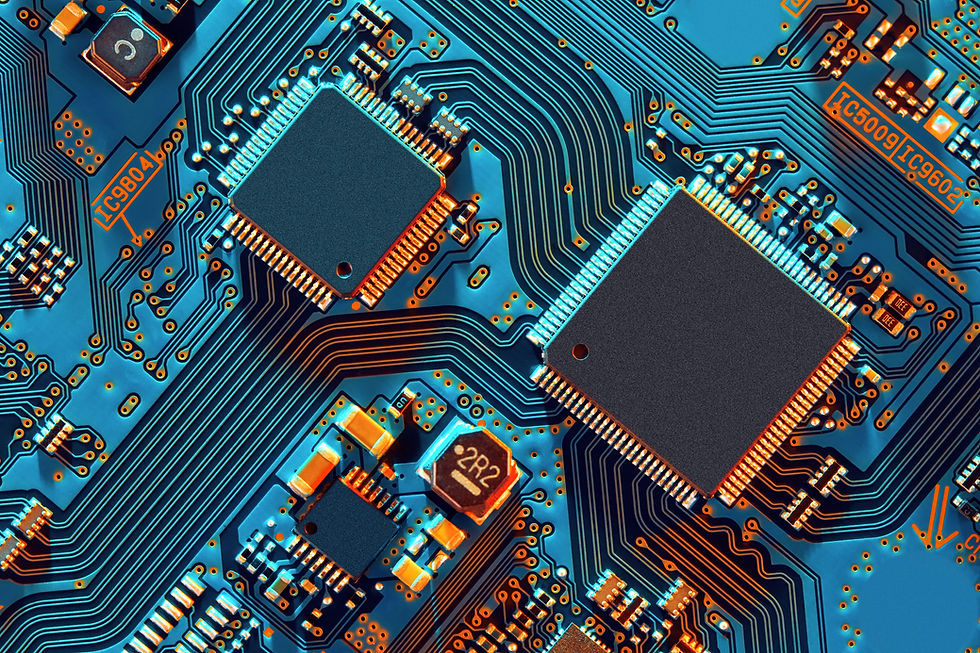The Semiconductor Industry: Uses, Key Players, and Future Growth Prospects
- Jason Choo
- Sep 29, 2023
- 3 min read

The semiconductor industry, the backbone of modern technology, plays a pivotal role in the global economy. Semiconductors, or integrated circuits, are essential components in a wide array of electronic devices, from smartphones and computers to automobiles and industrial machinery. This article delves into the multifaceted uses of semiconductors, highlights the important players in the industry, and explores the scope of growth and demand, including crucial demand and supply side details.
Uses of Semiconductors
Semiconductors are at the heart of electronic devices, facilitating the functionality of digital circuits and systems. Their applications span several sectors:
Consumer Electronics: Semiconductors power smartphones, tablets, televisions, and home appliances, making them smarter, more efficient, and more interconnected.
Computing: They are fundamental to the operation of servers, desktops, and laptops, driving advances in processing power, storage, and networking.
Automotive: Modern vehicles rely on semiconductors for everything from engine management systems to advanced driver assistance systems (ADAS) and in-car entertainment.
Industrial: In the industrial sector, semiconductors enable automation, robotics, and energy management systems, contributing to enhanced productivity and sustainability.
Healthcare: Semiconductors are crucial in medical devices, diagnostic equipment, and wearable technology, improving patient care and health outcomes.
Key Players in the Semiconductor Industry
The semiconductor industry is characterized by a high level of competition and innovation. Some of the key players include:
Intel: A leader in the production of microprocessors for computers and servers, Intel has played a crucial role in shaping the computing landscape.
Samsung Electronics: Known for its memory chips, Samsung is a dominant force in the semiconductor industry, also producing a wide range of consumer electronics.
TSMC (Taiwan Semiconductor Manufacturing Company): TSMC is the world's largest dedicated independent semiconductor foundry, providing manufacturing services for many of the industry's top companies.
Qualcomm: Specializing in semiconductors for telecommunications, Qualcomm is a leading provider of chips for smartphones, particularly those that connect to cellular networks.
NVIDIA: Renowned for its graphics processing units (GPUs), NVIDIA has expanded its focus to include artificial intelligence, autonomous vehicles, and data centers.
Scope of Growth and Demand
The demand for semiconductors is driven by several factors:
Technological Advancements: Innovations in AI, IoT (Internet of Things), 5G, and autonomous driving technologies are fueling demand for advanced semiconductors.
Digital Transformation: The global shift towards digitalization across industries, including healthcare, finance, and education, is increasing the need for semiconductor-enabled devices and infrastructure.
Consumer Electronics: The continuous demand for newer, faster, and more efficient consumer electronics sustains growth in the semiconductor market.
On the supply side, the semiconductor industry faces significant challenges, including:
Manufacturing Complexity: The complexity and cost of semiconductor manufacturing are increasing, requiring substantial investments in research and development, as well as in fabrication facilities.
Supply Chain Vulnerabilities: The COVID-19 pandemic highlighted vulnerabilities in the global semiconductor supply chain, leading to widespread shortages and production delays.
Geopolitical Tensions: Trade tensions and geopolitical issues can disrupt supply chains and affect the global distribution of semiconductors.
Future Prospects
The future of the semiconductor industry appears robust, with continued growth anticipated across multiple sectors. Efforts to address supply chain challenges, such as diversifying production and investing in new manufacturing capacities, are underway. Additionally, governments around the world are recognizing the strategic importance of semiconductors and are implementing policies to support the industry's growth and resilience.
In conclusion, the semiconductor industry is a critical enabler of modern technology, with a wide range of applications and significant growth potential. Despite facing challenges on both the demand and supply sides, the industry's key players are driving innovation and expansion, ensuring that semiconductors will continue to play a vital role in the global economy and technological advancement.






Comments